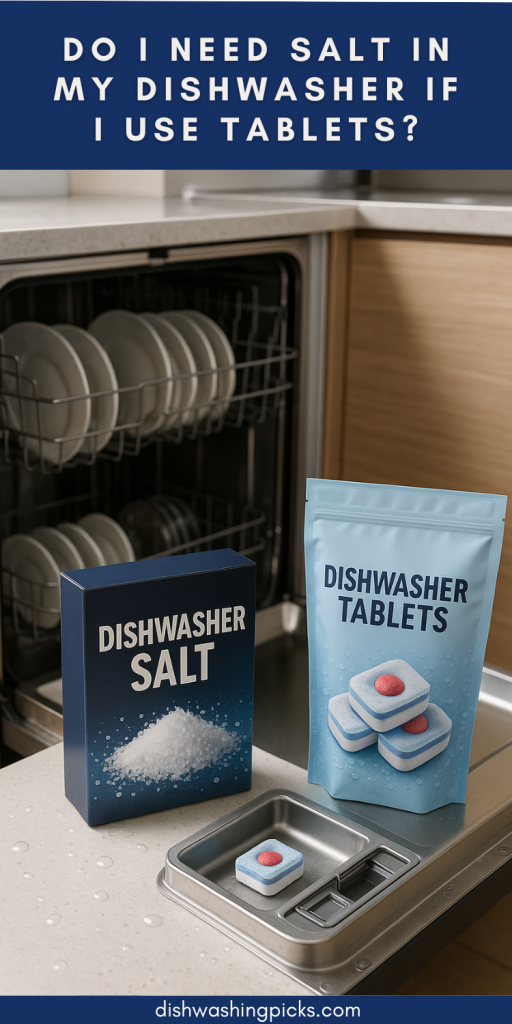
So, you’re standing in the cleaning aisle, holding a shiny box of 3-in-1 dishwasher tablets and wondering: “Wait… if these do everything, do I still need that dishwasher salt?” Great question. It’s one that confuses a lot of people, especially if you’re new to dishwashers or you’ve just upgraded to a fancier one.
Let’s break it down simply.
What’s Actually in Those Dishwasher Tablets?
Dishwasher tablets today often boast being “all-in-one” or “3-in-1,” right? That usually means they contain:
- Detergent (to clean your dishes),
- Rinse aid (to help prevent spots and streaks), and
- Salt function (yep, you read that right—some tablets claim to soften the water too).
Sounds like magic in a cube, doesn’t it?
But here’s the deal—just because they include a salt function doesn’t necessarily mean they replace actual dishwasher salt, especially if you live in a hard water area.
Let’s Talk Water Hardness (Yep, It Matters)
Water hardness isn’t just a plumbing term—it’s a big deal for dishwashers. If your water is hard (lots of calcium and magnesium), it can cause:
- Cloudy glasses,
- Gunky buildup on the machine,
- Poor cleaning performance.
This is where dishwasher salt really shines. It regenerates your dishwasher’s built-in water softener. No, your tablet doesn’t do that job.
Try thinking of it this way: using a tablet with no salt in hard water is like washing your hair with shampoo but skipping the conditioner. It kinda works… but not for long.
What Happens If You Skip the Salt?
If your dishwasher has a built-in softener (most modern ones do), and you don’t fill it with salt:
- The softener resin can’t do its job.
- Limescale builds up.
- Dishes get spotty.
- Machine efficiency drops.
- Lifespan shortens.
All because you skipped a few tablespoons of salt. Ouch.
Even with tablets that “contain salt,” it usually isn’t enough to keep up with constant regeneration.
How Can You Tell If You Need Salt?
Here’s a super easy checklist:
- Do you have hard water in your area? (You can check online or ask your utility provider.)
- Does your dishwasher have a salt warning light? If it’s blinking—yep, it’s time.
- Are your glasses coming out cloudy or your plates looking meh? That could be it.
If you said “yes” to any of the above—you definitely need salt.
Pro tip: Using proper dishwasher salt and keeping it topped up helps your tablets do their job better too. Win-win!
So, What’s the Bottom Line?
Dishwasher tablets are great—they’re convenient, powerful, and perfect for daily use. But they’re not a total replacement for dedicated dishwasher salt, especially in hard water areas. The salt isn’t just about sparkling glasses—it’s about protecting your dishwasher from the inside out.
Imagine this: You’ve got a car with premium fuel, but you never change the oil. That’s basically using tablets with no salt in hard water.
Final Takeaway: What You Should Do
- Yes, keep using those handy tablets.
- But also check your water hardness.
- And absolutely fill up that salt compartment if your dishwasher has one and you’re in a hard water zone.
Your dishes (and your machine) will thank you!
